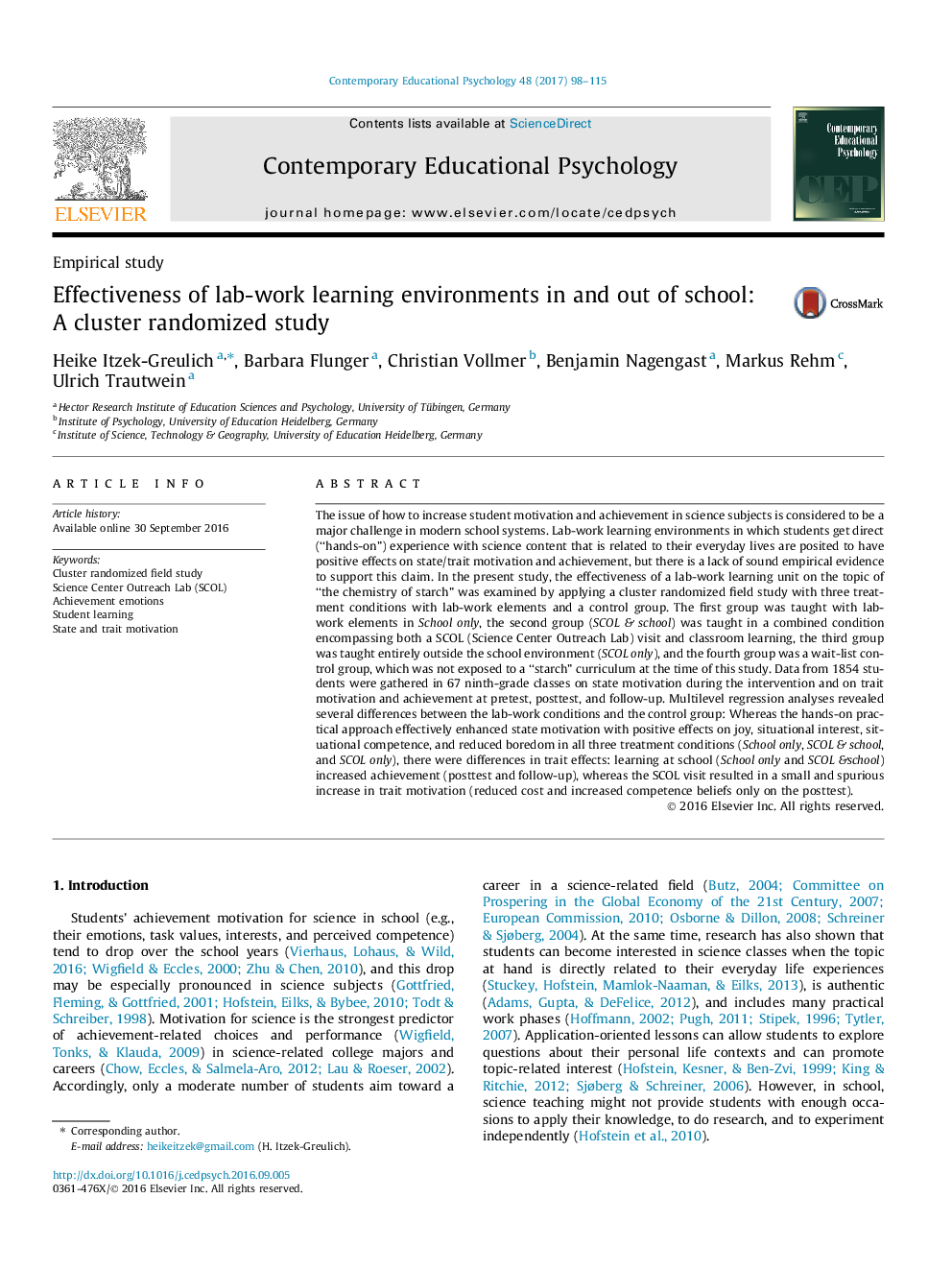| Article ID | Journal | Published Year | Pages | File Type |
|---|---|---|---|---|
| 4937926 | Contemporary Educational Psychology | 2017 | 18 Pages |
â¢Successful implementation of cluster randomized field trial in science education.â¢Intervention study shows effects on 9th graders science achievement and motivation.â¢Stronger effects in state than trait motivation.â¢The out of school setting is more effective in motivational gains.â¢Teaching in school is more effective in learning achievement.
The issue of how to increase student motivation and achievement in science subjects is considered to be a major challenge in modern school systems. Lab-work learning environments in which students get direct (“hands-on”) experience with science content that is related to their everyday lives are posited to have positive effects on state/trait motivation and achievement, but there is a lack of sound empirical evidence to support this claim. In the present study, the effectiveness of a lab-work learning unit on the topic of “the chemistry of starch” was examined by applying a cluster randomized field study with three treatment conditions with lab-work elements and a control group. The first group was taught with lab-work elements in School only, the second group (SCOL & school) was taught in a combined condition encompassing both a SCOL (Science Center Outreach Lab) visit and classroom learning, the third group was taught entirely outside the school environment (SCOL only), and the fourth group was a wait-list control group, which was not exposed to a “starch” curriculum at the time of this study. Data from 1854 students were gathered in 67 ninth-grade classes on state motivation during the intervention and on trait motivation and achievement at pretest, posttest, and follow-up. Multilevel regression analyses revealed several differences between the lab-work conditions and the control group: Whereas the hands-on practical approach effectively enhanced state motivation with positive effects on joy, situational interest, situational competence, and reduced boredom in all three treatment conditions (School only, SCOL & school, and SCOL only), there were differences in trait effects: learning at school (School only and SCOL &school) increased achievement (posttest and follow-up), whereas the SCOL visit resulted in a small and spurious increase in trait motivation (reduced cost and increased competence beliefs only on the posttest).
